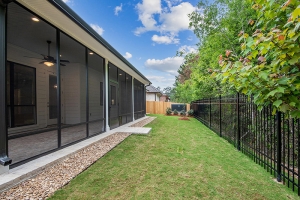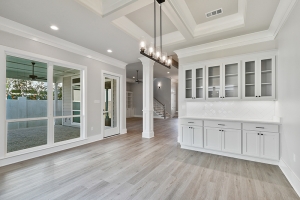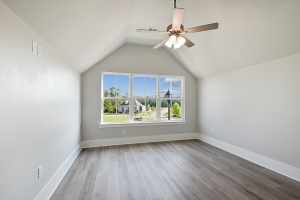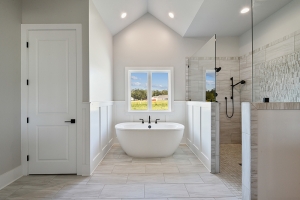Vapor barriers are an important part when it comes to building a home. Here is some science behind the reason why.

There are six sides of a new construction home which are in three categories, the walls, the roof and the foundation. All of these sides need to be protected from both liquid water and vapor water.
The side of every new construction home consists of a building envelope. This is where we want to keep moving such as liquid water, air, water vapor and thermal energy. There are several ways that water can sneak into your home. By liquid progress (wind-driven rain hitting up against walls), water vapor diffusion (movement of water vapor and its concentration level), and airflow (movement of air and its pressure levels).
A vapor barrier does not only need to block these areas but needs to also control the movement through them. This is done by using an air barrier (the material layer that will prevent the flow of air between air-conditioned air to unconditioned air), water-resistive barrier WRB (this material layer prevents liquid water from seeping into the house), waterproofing (this is a system that helps prevent and manage build liquid water infiltration), vapor retarder (a material layer that stops water vapor movement by diffusing it), insulation (the material layer that is used to help with the loss or gain of thermal energy).
So basically the goal is to keep your building’s envelope dry, efficient, comfortable and healthy. Remember there are different ways to control water, air, vapor and heat. Here are the reasons why, they all can move in or out of a home in both directions, they can move at different rates and degrees, and they can affect each other.


